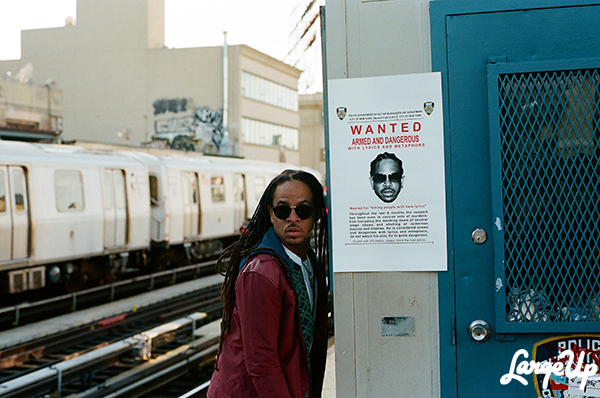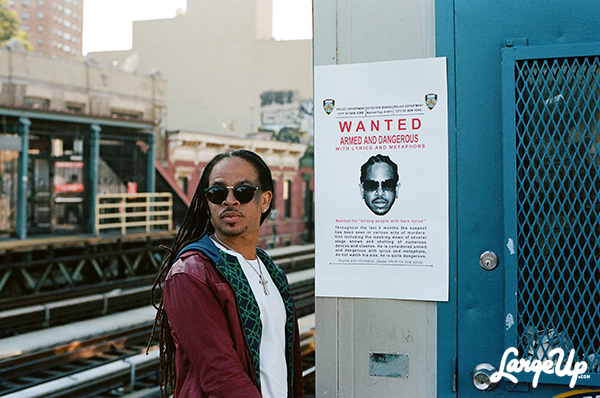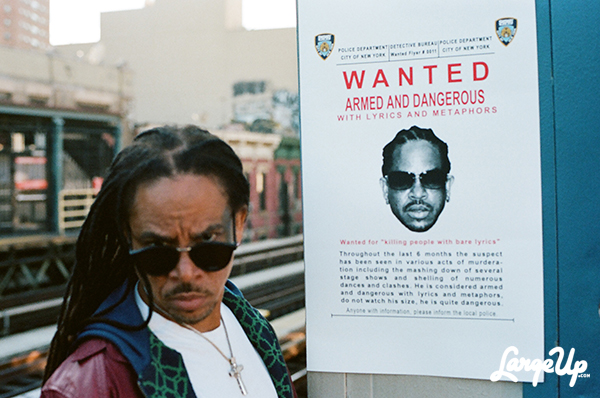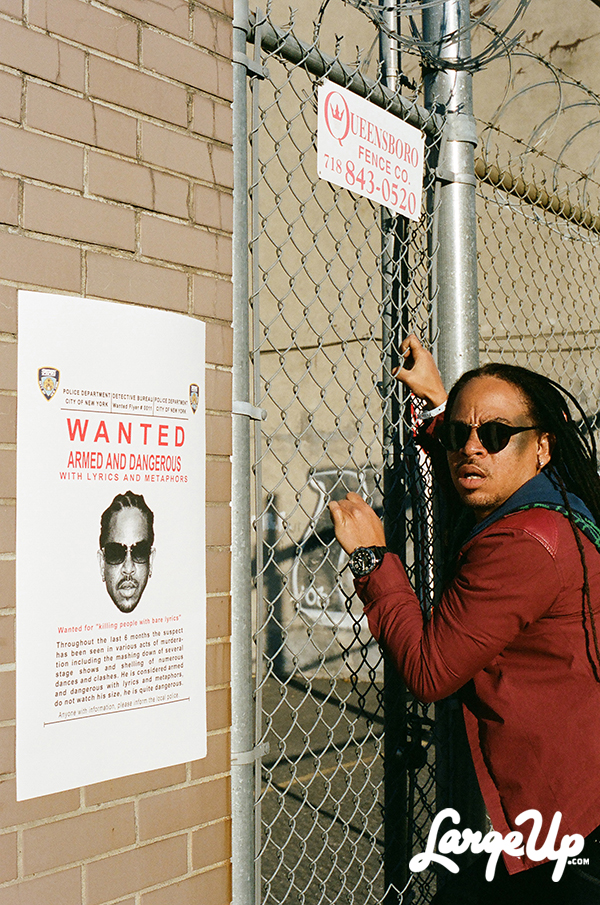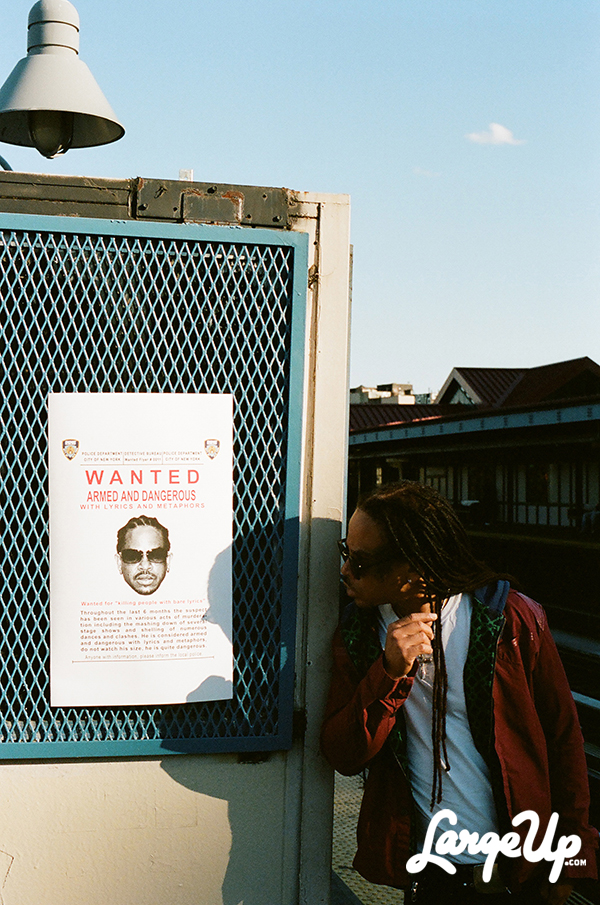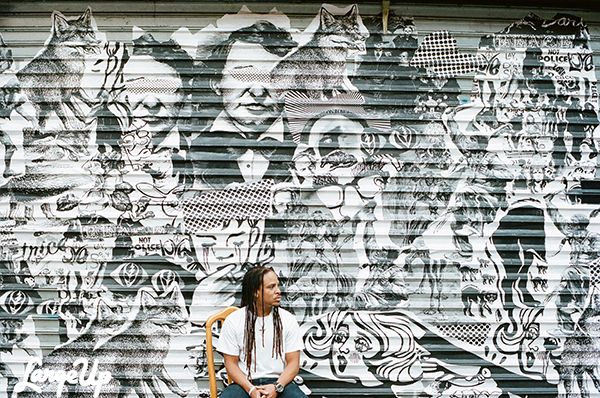LU: What did you learn from Shaggy’s success?
RF: The first conversation — before we even can talk about that — we were in Jamaica before we had the falling out and I took him to Jollies Restaurant in Portmore to eat some fish. I had just got signed and he was signed to Virgin. I was telling him I want to sing songs to fight the struggle, to help the people, and he was like Well, I want to sing happy songs, I want to sing nice songs, I want the mansions, I want the beautiful life. He got all the things that he was dreaming for, and I pretty much got what I was dreaming about. What I’ve learned is, he’s the type of dude that is very disciplined because he was in the Marines for four years. He went to war. He’s drilled, well-trained. They teach you to keep your eyes on the target regardless of what is going on. I’m the type of person that my mind is all over the place. So I’ve learned from him staying focused and disciplined at your craft, and not getting distracted by irrelevant, unnecessary things.
LU: Were there any people in your career who gave you valuable advice?
RF: Beres Hammond. I did a couple tours with Beres, and we always share the same tour bus. I get to sit down and listen to his advice all day. Whenever he sees me, he treats me like his son because he feels like I’m this dude that is so talented but I eff around a lot and he tries to make me do what I need to be doing, like my daddy you know? Yeah, Beres Hammond. Johnnie Ringo use[d] himself as a example for me not to ever use drugs. He told me he came to America and became a drunkie, and I should stay far from drugs. Super Cat told me after “Jamaica Nice” came out that I should not over record myself and become stale. I should just try and balance myself in middle because once you’re on top you only fall to the bottom.
LU: What are some things you would recommend to an artist coming out now trying to do dancehall, to distinguish yourself.
RF: It’s a different time now. Technology has changed the whole recording scene. Before, when we went to studio, we had to sing a hook, four or five times. Now you have to sing the hook once, and they fly the hook. If you’re off key back in the day, you had to find the key or go home, and study how to hit back that key. Now there’s a machine to put you on key. There’s no development for the artist now because of technology, and that’s something that will never come back. Dem days days is done, now it’s digital. It is what is it is.
The only thing you can tell an artist right now is to practice his craft. Train yourself to develop your vocal skills. Develop a passion for the music. I find they don’t necessarily have a passion for the music, they have a passion for the business, the image, and they have a passion for the profile, but they don’t have a passion for the music itself because it’s all popcorn, digital, computerized. They don’t even know what real music is supposed to sound like. You have a memory of it, they don’t. They think this is what it’s supposed to sound like, and what you’re talking about they’re like “Oh, you’re just old guys.” Back in the day when I just started, the older guys were telling me, “Ah, your music is rubbish,” and I was like whatever, too. They would have to go and listen to all the old veteran artists, listen to what they were doing, and learn something from it, because that’s the only way.
LU: What have you been doing since you stopped touring?
RF: Having kids [laughing]. I always wanted kids so when I came off the road, I knew I needed to have some kids. I feel like if I’m just performing and having all this success, and I ain’t got no kids, I’m empty. I need to sow a seed and watch that seed grow to actually motivate me within this time, because you need something to motivate you. I never used to be that motivated because I had no kids, I was just living for me. I might not go [to] the studio, I might not wake up until 3 o’clock in the afternoon and sleep the day away, because I ain’t got no mouth to feed but my own. You have kids, you’re really motivated. I’ve recorded this year more than I have my entire life, because of my kids. I’m driven by my children, I have to feed them and they motivate me. I have more things to sing about, I have way more substance than before. So I’ve been doing a lot of recording.
LU: Had you done a mixtape before?
RF: I’ve done dancehall cassettes, like working on soundsystem and stuff like that but, as far as a mixtape, this is my first one.
LU: What will people find on the Fiyah Fox mixtape?
RF: What I try fi do with this tape is: there’s a style that we create here in Brooklyn, between Screechy Dan, myself, and probably a few other artists—a certain flow, because we flow! In Jamaica, they DJ. We DJ here, but we are very in tune with flowing, like rappers. We can deliver Jamaican patois like a rapper rapping in America, so I try to do a couple hip-hop tracks presenting that kind of style, and getting involved with singing all the cultural, life issues, reality stuff and gangster stuff, girl stuff. If someone follow Red Fox, [I] never just sing about one thing, I sing about so many different things. I could be singing about killing somebody today, then peace and love tomorrow. I express myself in many ways, because I feel like this is who we are. I don’t want to go around carrying an image as if I’m holier than anybody else. I try to express myself on this mixtape in a way that says this is what we do as human beings, this is how we live, this is how we think.

